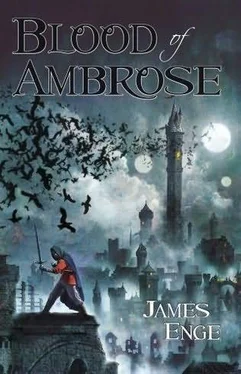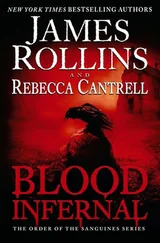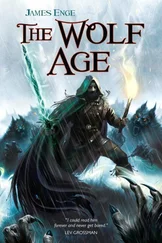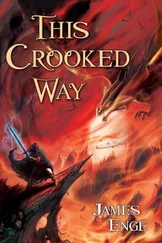"I have them here, my Lord Protector."
"A squad of City Legionaries?" shouted Urdhven, reaching for his sword.
"I took them prisoner," Steng said modestly, and gestured at some bound forms lying at the foot of the stairs.
"Excellent, Steng," cried the Protector, and clapped his poisoner on the shoulder. He leapt down the steps and knelt at the side of one of the bound figures.
Vost followed, after mouthing some congratulatory noises, while his eyes burned with hatred in the darkness. His love for Urdhven was a jealous love, and he hated Steng because of the poisoner's influence over the Protector. Steng reflected on how truly dangerous Vost was. He forced himself to remember this, occasionally, because Vost was such a flat-faced capering dung-beetle of a man that it was easy to forget.
"Steng!" Urdhven shouted. "This man is dead!"
"Yes, my Lord Protector," Steng said. "I killed them all."
"Didn't you realize I would want to question them?"
Steng smiled. He had not moved from his place on the topmost stair. "That was precisely why I killed them, Lord Urdhven."
He walked down the stairs, watching through the dusk as the suspicion, darker than the shadows, settled down on the Protector's face. Is Steng, too, about to betray me? That was what Urdhven was thinking. Whereas Vost was looking at him almost affectionately. Poor Vost-who would surely hate him dearly in a very short while.
"The silence of dead men," Steng remarked as he descended the stairs, "is proverbial-but overrated. Consider: the dead man has all the knowledge the living man had, but he has no personality. Because he has no personality, he has no loyalty, no greed, no self-interest, no ideals. He has no reason not to talk, if he were only able to. If asked, he will simply answer-if he is able to."
Now he was standing at the bottom of the stairs beside Urdhven and Vost. Urdhven trusted him again and Vost hated him again: that was the way of things.
"Do what you have to do," Urdhven commanded.
Steng knelt down by the nearest body and drew apart its slit tunic. He heard Vost, seeing the Flagrator planted in the riven chest, gasp behind him. Steng smiled. A trickle of blood, thick and dark as molasses in the dim light, was meandering down the white skin stretched over the corpse's ribs. Steng wiped it away with a hiss of fastidious distaste. The device was in order; in fact, the blood of the recently dispatched corpse had warmed it almost to operation point.
"What is it, Steng?" the Protector asked calmly. Steng suspected it was a formal question-not an expression of curiosity so much as a statement that the Lord Protector had no strong feelings about mutilated corpses. Therefore Steng chose not to respond directly.
"We may look upon any body," he said, "as a mechanism, like the hinges of a door, or the Water Wheel. The mechanism will work properly if it is in good repair and has a proper stimulus, a source of energy. These mecha- nisms"-he waved his hand at the assembled corpses-"are in good repair; their deaths were effected without harming the bodies. What they lack to function is the proper stimulus, the source of energy we call life."
His pale ropy fingers moved as he spoke, drawing the necessary imple ments from the pockets sewn into his wide flowing sleeves: a firebox, a strip of yellow metal submerged in a jar of oil, a candle, and a fistful of pale narrow wedges of maijarra wood.
"With the Flagrator"-and he gestured at the bristling instrument of metal and glass driven into the dead man's chest-"we will provide an artificial stimulus, a pseudo-life, if you will. The mechanism will then function to the best of its ability and-because it has none of the volitive propensities associated with genuine life-it will do more or less as we tell it."
"A human golem," Urdhven remarked.
Steng paused before replying. "It is not as useful as a golem," he said. "The capacities of the corpse are limited to some subset of the abilities of the man. The connections of the Flagrator are tenuous and would be disturbed by physical movement. Also, it was necessary to destroy the left lung and most of its associated musculature to implant the Flagrator."
"Interesting," the Protector remarked distantly, and Steng knew his evasive tactics had been successful. "He will speak?"
"It will speak," Steng replied.
"Then he has intelligence. Why, then, not will?"
Steng reflected that the Protector, in spite of his appetites and angers, was not a wholly stupid man. "Intelligence," he said aloud, "like beauty and strength, is largely a physical attribute. Because it is resident in the structure of the brain, this is not obvious; it is nonetheless true. Will, however, is an expression of personality, of identity."
"Of spirit?"
"If you prefer. You must not expect to find it as intelligent as it was when it was alive, however. The brain, as has often been observed, is something like a parasite feeding off the blood of the body. This brain has had no fresh blood to eat for some time and has consequently deteriorated. It will continue to do so, by the way-the Flagrator warms and circulates the blood of the body, as part of its function. But it does not generate fresh pure blood as a living heart does."
"You've cut out the heart?" asked Vost, who was clearly attracted and repelled by the notion.
"Yes," said Steng indifferently. "It is around here somewhere. Excuse me for a moment; I must perform some delicate manipulations."
Even as he spoke he was carefully turning valves on the Flagrator with his long ropy fingers. The valves hummed slightly, in tones that varied with their setting, and he set them so that they sang a long monotonous harmony. Then he took a long piece of maijarra wood and wedged it into the corpse's mouth, so that it looked as if the corpse were thoughtfully gnawing at it. Finally he opened the jar of oil and removed the strip of metal with a small pair of tongs. The metal burst into multicolored flame as the air touched it, eerily lighting up the poisoner's face. With a hasty exclamation that might have been a curse or the fixative word of a spell, Steng dropped the burning metal into the central glass bulb of the gleaming turreted Flagrator.
Instantly the corpse began to convulse. Steng had carefully bound the body so that it could not move much, nor damage the delicate mechanisms of the Flagrator. But it was startling to see the dead body twitch and shudder, its teeth clamping tight on the strip of maijarra wood, arcing its back as if it were in agony.
"Is he in pain?" Vost asked.
"There is no 'he,"' Steng replied irritably. "It does not matter if the nerves register pain. There is no one to feel it."
The convulsions subsided. The eyes were open and staring, the jaw slack. Steng removed the stick of wood from its mouth. Its chest rose and fell in a slow irregular rhythm.
"Is he ready?" the Protector asked.
"I believe it is ready."
"What is your name?" the Protector said to the body (as if it were a captured prisoner, Steng thought).
The body did not speak.
"Steng!"
"My Lord Protector," Steng said, "it has no name. It is not a person and will not respond as one. If I may-"
"No." The Protector tugged at his chin, then addressed the corpse. "What was your name?"
"This was Jence, of the City Legion," the corpse replied. Its voice was unmodulated and carried no emphasis. A whiff of its breath apparently reached Vost, who turned away gasping.
"Who was fence's captain?" the Protector continued.
"Lorn."
"Death and Justice! I should have known that. Vost, do you hear?"
"Yes, Lord," Vost replied, still gasping.
"I was going to have the city commander break him tomorrow," the Protector said reflectively. "He must have guessed that and decided he had nothing to lose."
Читать дальше












